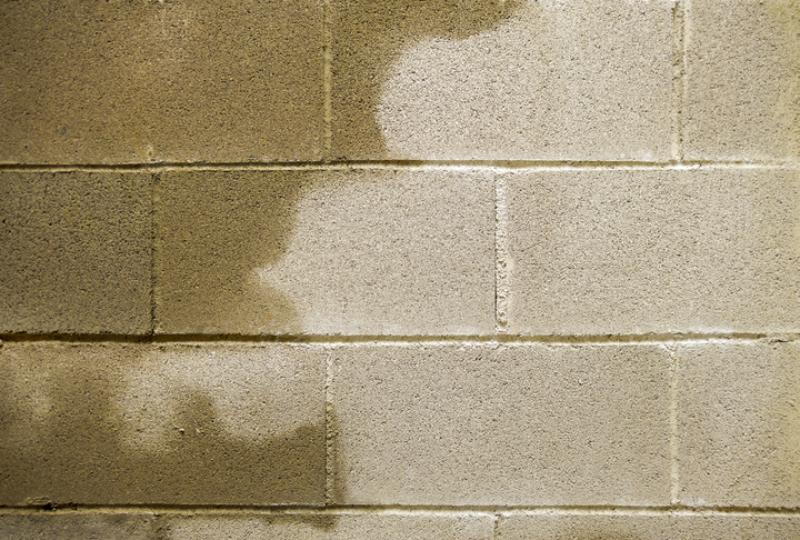Does Your Basement Smell Musty? Serving in Gaithersburg, MD
With years of experience in water and dampness solutions, Triad Basement Waterproofing has assisted homeowners across the DMV area to keep their basements from smelling musty. Do you find yourself wrinkling your nose each time you step into your basement? A musty odor is more than just unpleasant. It can be an indication of underlying moisture issues. Luckily, resolving these smells is possible. Below, we will help you understand what causes them, how to eliminate musty odors, and what steps to take to prevent them from returning.
What Causes a Musty Basement?
A musty basement smell often results from excess moisture, creating a perfect mold and mildew environment. Identifying the cause of moisture is the first step to addressing your musty basement problem. Here are some of the primary causes of musty odors in basements:
- Poor Ventilation: Without proper air circulation, moisture gets trapped, encouraging the growth of mold and mildew.
- Leakage: Cracks in the foundation, walls, or windows allow water to seep in, leading to dampness.
- High Humidity Levels: Basements are naturally more humid due to their underground location.
- Plumbing Issues: Leaky pipes or condensation on pipes can contribute to hidden moisture.
- Organic Materials: Cardboard boxes, upholstery, and wood stored in basements absorb humidity, providing a breeding ground for mold.

How to Identify a Musty Basement
Sometimes, identifying a musty basement is as simple as taking a whiff, but there are other signs to watch out for beyond the smell. Here’s a checklist to help you spot the problem early:
- Persistent musty odor, especially after rain.
- Visible mold or mildew growth often appears on surfaces as black, white, or green patches.
- Water stains or discoloration on walls, floors, or ceiling tiles.
- Condensation on windows or pipes within the basement.
- Warping of stored items made of wood, paper, or fabric.
How to Eliminate Musty Odors in Your Basement
While removing a musty smell in your basement may seem daunting, a few key actions can help resolve the issue efficiently. If you’re looking for a solution to resolve this matter, we’re here to help. Here are some steps you can take:
- Remove Moisture Sources: Address any leaks or seepage immediately. Whether it’s a crack in the foundation or a malfunctioning dehumidifier, fixing the moisture problem is critical.
- Improve Ventilation: Use exhaust fans or open windows (if feasible) to encourage airflow. Installing a whole-house ventilation system can provide even better results.
- Use a Dehumidifier: Keep the humidity levels below 50% by running a dehumidifier regularly in your basement.
- Clean Surfaces: Wipe down walls, floors, and other surfaces with water and mild detergent to remove odors that are clinging to them.
- Apply an Antimicrobial Spray: While not a mold remediation service, a targeted antimicrobial spray can reduce mold presence when combined with moisture management solutions.
- Remove Damp or Damaged Items: Throw away damaged or musty-smelling materials like old rugs or cardboard.
Mold Prevention Tips for Basements
Prevention is the best approach when it comes to musty basements. Here are some practical tips to keep your basement dry and odor-free long-term:
- Waterproof Your Basement: Work with professionals like Triad Basement Waterproofing to seal cracks and install drainage systems to prevent water intrusion.
- Install a Sump Pump: Ensure water is efficiently redirected away from your home to avoid pooling near the foundation.
- Keep Items Off the Floor: Store materials in plastic containers on shelves rather than directly on the floor to avoid contact with dampness.
- Check Gutters and Downspouts: Ensure gutters and downspouts direct water away from your home’s foundation.
- Monitor Indoor Humidity Levels: Use a hygrometer to check the humidity levels in your basement regularly. If necessary, employ a dehumidifier.
- Inspect Regularly: Conduct monthly inspections to catch leaks or early signs of dampness.
Frequently Asked Questions
Dealing with basement dampness can be challenging, and it often raises various questions about causes, prevention methods, and solutions. To help you better understand and address common concerns, we’ve compiled answers to some of the most frequently asked questions:
- Why does my basement smell musty after it rains? Rainwater can seep into your basement through cracks and drains, increasing humidity and fostering mold growth. Addressing leaks and improving waterproofing are essential to solving this issue.
- Can a dehumidifier completely get rid of a musty odor in the basement? A dehumidifier effectively removes musty odors by reducing humidity. However, you may also need to address other issues, like leaks or lack of ventilation.
- Why don’t air fresheners work on musty odors? Air fresheners only mask smells temporarily. To truly eliminate musty odors, you must address the root causes, like moisture buildup.
- How often should I check my basement for leaks or dampness? You should inspect your basement monthly or after heavy rainfall to catch potential moisture problems early.
Contact the Professionals
If your basement smells musty, don’t ignore the problem. Musty odors often point to excess moisture that could lead to more significant issues if left untreated. Triad Basement Waterproofing specializes in water and dampness solutions for basements in the DMV area, ensuring your home stays dry and odor-free. Don’t wait until the problem worsens. Contact us today for a consultation and take the first step toward a fresher, healthier basement.
Why Choose Us?
- Over 27 Years of Experience
- Family Owned and Operated
- Licensed, Bonded & Insured
- Waterproofing Experts
- Lifetime Transferable Warranty
